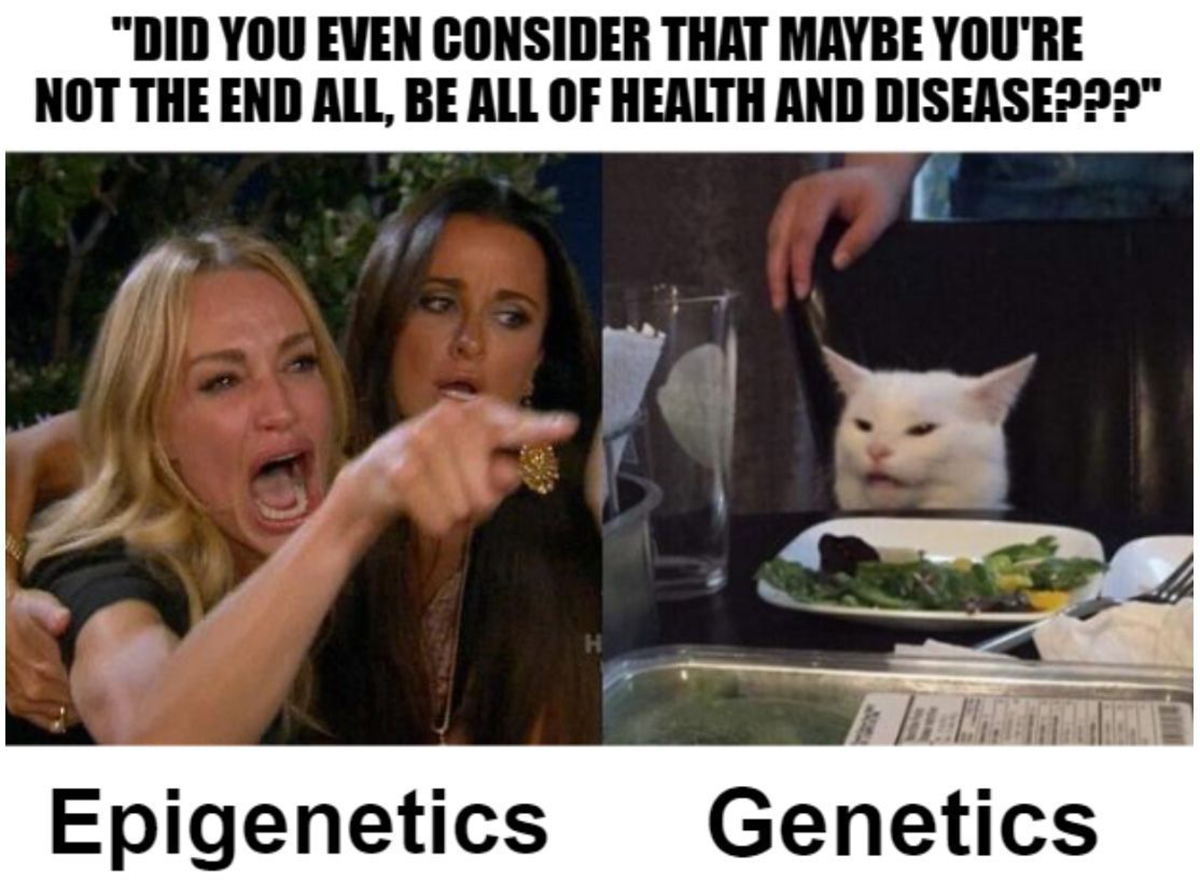The epigenome isn't just some biological afterthought
The Epigenome: What it can tell us and why we should care to look at it thoughtfully.

Epigenetics is the study of modifications that aren’t coded directly in the sequence of our DNA.
These modifications can include methylation of cytosine DNA bases (they’re still cytosines, though) and modifications to the histones that coil DNA up into chromosomes.
The major effect of these changes is that they result in the opening or closing of our DNA for reading by the cellular machinery that converts this code into proteins.
The epigenome differs from the genome in that these modifications can change frequently and are influenced by a variety of external environmental factors and cellular microenvironmental factors.
Some epigenetic modifications can even be inherited from your parents!
However, it’s early days.
And it’s safe to say that we have A LOT to learn about the epigenome.
There are still many questions about whether epigenetic modifications are drivers (causes) or passengers (effects).
But we do have a lot of evidence that epigenetic changes are important in key areas of human health and disease:
Cancer - Mutations are frequently observed in DNA and histone modifying enzymes, histones themselves, and other genes involved in changing the 3D structure of the genome. Under certain circumstances, it also seems that epigenetic changes can be major drivers of cancer progression in the absence of other obvious changes to DNA. All of these combined serve to turn on tumor promoting genes (oncogenes) and turn off tumor suppressors, ultimately leading to cancer!
Aging - Often referred to as the epigenetic clock, it has been observed that the amount of methylation in the genome changes as we age! These changes have been correlated with cellular dysfunction (loss of control, cell death, etc) and are exacerbated by obesity and low levels of physical activity.
Rare Diseases - Mutations in epigenetic regulatory genes can cause a number of rare diseases. These are often characterized as traditional single gene diseases, but they underscore how important it is to have a properly functioning epigenome. There is also quite a bit of research on the role of epigenetics in rare complex diseases like Schizophrenia and Autism Spectrum Disorder where it has been notoriously hard to pin down major genetic causes.
Disease Risk - Exposure to environmental factors such as drugs, chemicals, infections, or other stressors in the early stages of development or early years of life can cause lasting epigenetic changes that may result in disease later in life. These can include diabetes, obesity, cancer and neurological disorders. But one important new area of research is how behavioral stresses in adolescence can contribute to epigenetic changes that lead to the development of psychiatric disorders.
That said, there’s no doubt we should be excited about the future of epigenetics and all of the secrets we still have to learn from the epigenome!
